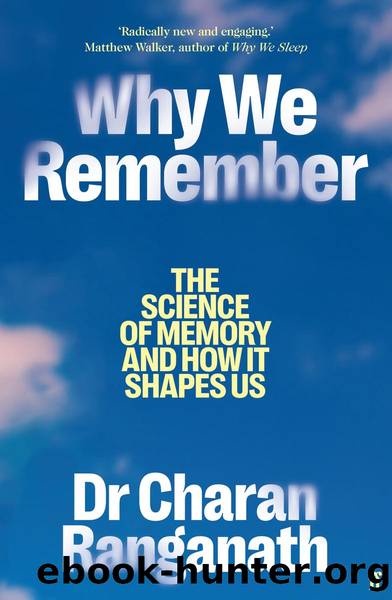Why We Remember by Charan Ranganath

Author:Charan Ranganath
Language: eng
Format: epub
Publisher: Faber and Faber
Published: 2024-02-15T00:00:00+00:00
9
Some Pain, More Gain
why we can learn more when we make mistakes.
. . .
I learn from my mistakes. Itâs a very painful way to learn, but without pain, the old saying is, thereâs no gain.
âJohnny Cash
One of the unique advantages of being both a memory researcher and a college professor is that the work unfolding in my lab informs the work I do in the classroom and ultimately makes me a better teacher.
I taught my first undergraduate class, Human Learning and Memory, in 2002. My daughter, Mira, was an infant, and I had just started at UC Davis, as an assistant professor. Although I was a bit green, the class went well, and I continued to refine it over the next eighteen years. By the time Mira grew up and moved away to college herself, I had settled into a comfortable routine in teaching my class. That is, until a global pandemic forced me to reconfigure my approach to teaching.
In January 2021, after ten months of lockdowns and social distancing protocols that forced educators to rapidly pivot to virtual instruction, I was dreading the start of a new quarter. Like millions of teachers around the world, I was facing the challenge of how to teach and inspire a grid of faces on a computer screen. Having watched my daughter, Mira, struggling to stay engaged in courses that she would have loved to take in person, I couldnât help but worry about how my students were taking to online instruction. I realized I had to radically rethink how I taught this course if I was to rise to the challenges of remote learning.
For close to two decades, I had been basing my studentsâ grades primarily on the results of two midterms and a final exam. Itâs easy to administer tests in person, but with online instruction itâs nearly impossible to prevent cheating, so I had to let go of the traditional idea of using tests as a yardstick to measure achievement. Once I surrendered to this reality, it opened me to the possibility of using testing for an altogether different purpose. Rather than continuing to think of tests as a tool for measuring what was learned, I decided instead to use testing as a tool to drive learning. To do that, I had to look no further than the work we had been doing in my lab.
We were doing brain imaging studies based on decades-old research showing that testing people on recently viewed material dramatically increases the ability to retain that information over time. Doubling down on the model we were using for these experiments in the lab, I switched to a format in which my students had a three-day window to take an open-book quiz online every week. Soon after the completed quizzes were submitted to me, students could see the correct answers and learn from their mistakes. If they got it right, seeing the correct answers reinforced what they had learned. The point of these weekly quizzes wasnât to
Download
This site does not store any files on its server. We only index and link to content provided by other sites. Please contact the content providers to delete copyright contents if any and email us, we'll remove relevant links or contents immediately.
A Mind For Numbers: How to Excel at Math and Science (Even If You Flunked Algebra) by Barbara Oakley(3307)
Limitless by Jim Kwik(3175)
Fluent Forever: How to Learn Any Language Fast and Never Forget It by Gabriel Wyner(3083)
The Marketing Plan Handbook: Develop Big-Picture Marketing Plans for Pennies on the Dollar by Robert W. Bly(3062)
Remember It! by Nelson Dellis(2769)
The Mind Map Book by Tony Buzan(2578)
Memory Rescue by Daniel G. Amen(2423)
The Memory Code by Lynne Kelly(2401)
Super Reading Secrets by Howard Stephen Berg(2045)
Boost Your Brain Power in 60 Seconds by Michelle Schoffro Cook(1990)
Memory Rescue: Supercharge Your Brain, Reverse Memory Loss, and Remember What Matters Most by Amen Dr. Daniel G(1980)
Brain Training: How To Learn and Remember Everything (Neuro Linguistic Programming, Remember Everything, Increase memory, How To Remember Book 1) by Lynch George(1873)
How We Learn: The Surprising Truth About When, Where, and Why It Happens by Carey Benedict(1799)
You Can Have an Amazing Memory by Dominic O'Brien(1798)
The Mechanism of Mind: Understand how your mind works to maximise memory and creative potential by Edward de Bono(1771)
The Old Farmer's Almanac 2020 by Old Farmer’s Almanac(1732)
The Brain Boost Diet Plan by Christine Bailey(1662)
How to Develop a Perfect Memory by Dominic O'Brien(1611)
Master Your Memory by Ron Fry(1545)
